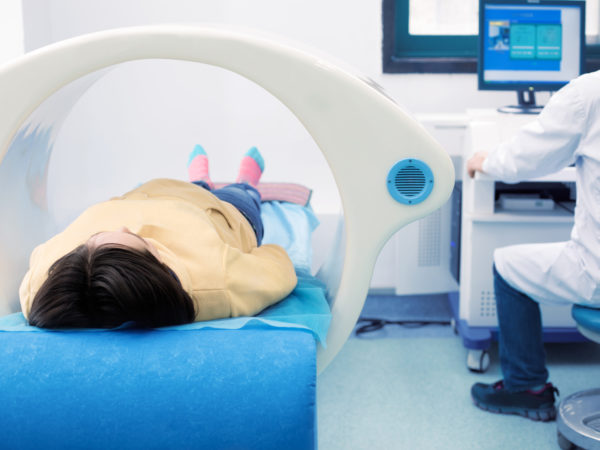Better Bone Density Test?
Is there a new type of bone density test? I heard that there’s a single test that can predict long in advance whether or not your bones will break due to osteoporosis.
Andrew Weil, M.D. | January 14, 2008

Bone mineral density tests measure bone loss in order to determine if you are at risk for, or have, osteoporosis, which can lead to fractures of the wrist, hip, and spine. Osteoporosis is mostly seen in postmenopausal women but can also occur in older men. Risks are highest among women with a family history of the disease, and those who are thin, have a sedentary lifestyle, or smoke or drink heavily.
The latest news about bone density testing comes from a 15-year University of Pittsburgh study involving 2,680 women and reported in the Dec. 19, 2007 issue of the Journal of the American Medical Association. The study found that the long-term risks of fractures due to osteoporosis were greatest among women who had low bone density and a previous spinal fracture when they entered the study. Those women who had both findings had a 56 percent chance of developing another fracture within the 15-year course of the study; women with normal bone density and no previous fractures had only a nine percent fracture risk over the same period.
The test used in the study is the same widely available DEXA (for Dual Energy X-ray Absorptiometry) scan that measures the density of bone in the spine, hip, or whole body. Although we knew that low bone mineral density increases the risk of osteoporosis, the Pittsburgh study quantified the long-term risk and should help doctors identify the women who most need treatment to prevent fractures.
If you’re a woman at risk for osteoporosis, I strongly recommend that you have a DEXA scan. If it shows that you have had fractures or that your bone density is low, talk to your physician about the benefits and risks of treatment with one of the bone building drugs now available.
In addition, I recommend that all women supplement with 500 to 700 mg of calcium citrate in two divided doses taken with meals, for a total daily calcium intake of 1,000-1,200 mg from all sources. For men, I now suggest aiming for 500 mg from all sources. (Because higher amounts have been linked to increased risks of prostate cancer, men generally should avoid supplemental calcium.) I also recommend that both men and women take 2,000 IU of vitamin D3 to facilitate calcium absorption and to promote bone mineralization as well as for protection from a number of serious diseases. You can also get calcium by eating leafy greens and soy foods, as well as milk and milk products. For the sake of your bones, be sure to exercise regularly: weight-bearing aerobic activities (walking or running) and weight-lifting are proven protective measures.
Andrew Weil, M.D.










